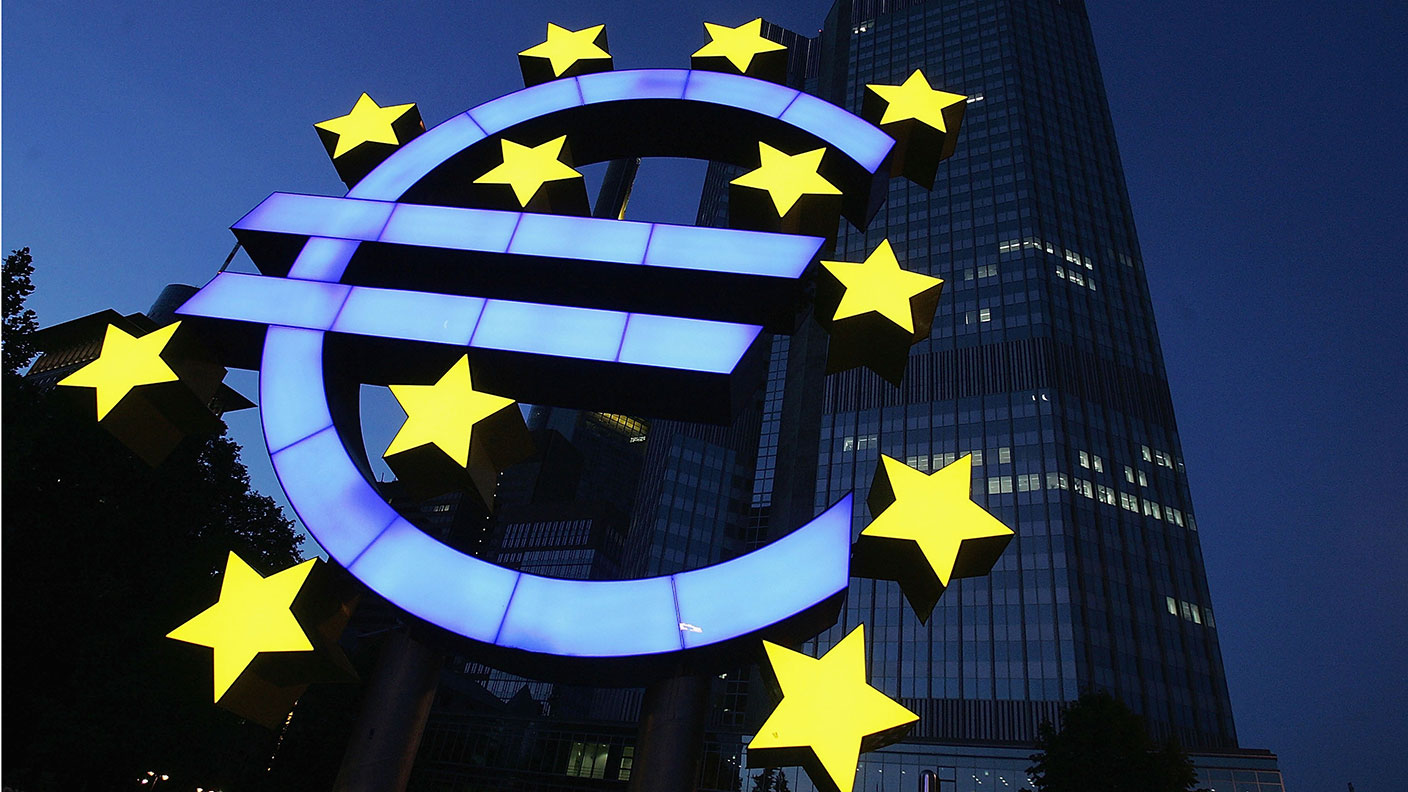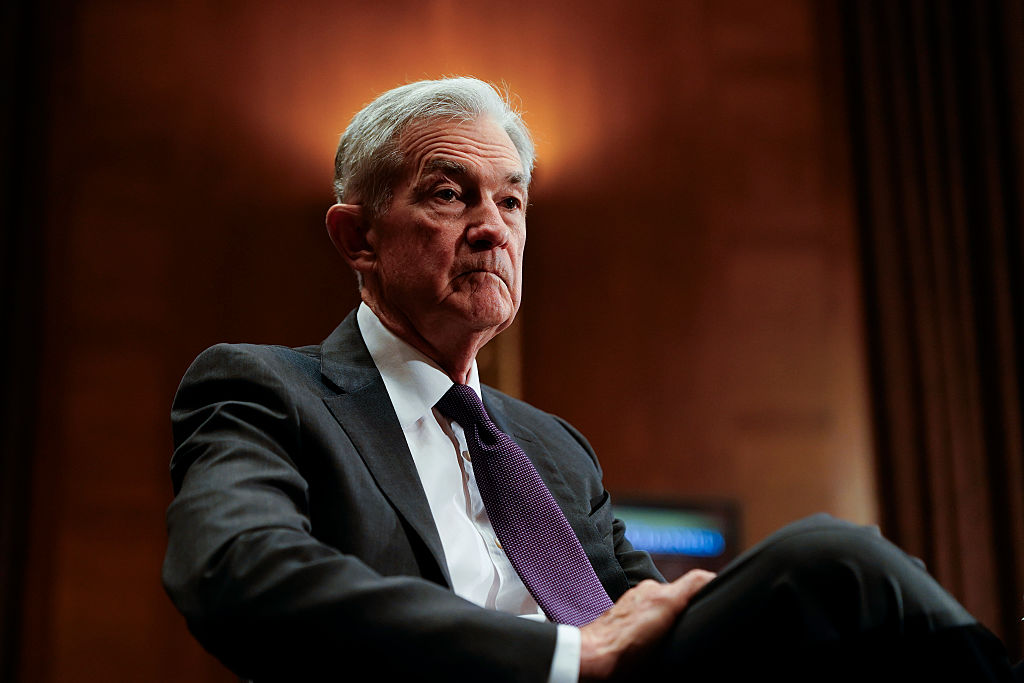Why the European Central Bank’s new regime matters more than you think
The ECB has said it will tolerate higher inflation and it won’t be raising interest rates for quite some time. It’s another big clue for markets – but they remain unconvinced. That’s a mistake, says John Stepek. Here’s why.


Get the latest financial news, insights and expert analysis from our award-winning MoneyWeek team, to help you understand what really matters when it comes to your finances.
You are now subscribed
Your newsletter sign-up was successful
Want to add more newsletters?

Twice daily
MoneyWeek
Get the latest financial news, insights and expert analysis from our award-winning MoneyWeek team, to help you understand what really matters when it comes to your finances.

Four times a week
Look After My Bills
Sign up to our free money-saving newsletter, filled with the latest news and expert advice to help you find the best tips and deals for managing your bills. Start saving today!
Yesterday, the European Central Bank (ECB) re-affirmed that it has no intention of raising interest rates for the foreseeable future.
Markets didn’t especially care.
The euro’s value against the dollar – probably the best barometer of whether anything about the move came as a surprise – was barely changed.
MoneyWeek
Subscribe to MoneyWeek today and get your first six magazine issues absolutely FREE

Sign up to Money Morning
Don't miss the latest investment and personal finances news, market analysis, plus money-saving tips with our free twice-daily newsletter
Don't miss the latest investment and personal finances news, market analysis, plus money-saving tips with our free twice-daily newsletter
And yet, I think it’s more important for investors in the long run than they might realise...
Central banks are spelling it out for us – they will tolerate higher inflation when it comes
The ECB recently moved to follow the US Federal Reserve by swapping to a new inflation target. It went from targeting “below, but close to 2%” to having a target that centres on 2% instead. In other words, it’s like the Bank of England – 1% or 3% is equally good/bad, as opposed to 3% being much worse than 1%.
Yesterday, at its latest meeting, we got a view of what that actually means in practice.
As Cedric Gemehl points out for Gavekal, it means that interest rates are going to be stuck where they are for a very long time indeed.
Without getting bogged down in details, the ECB raised the bar on what it needs to see or expect from inflation before it will actually raise rates – or importantly, stop quantitative easing. Put simply, the new framework “virtually guarantees no rate hikes until 2024 at least”.
You might think: “So what?” And on one level you’d be right.
It’s not as though inflation has been an issue up until now. Indeed, deflation has been the bigger threat for a long time. So why does it make any difference if the ECB says that it will tolerate higher inflation for longer, if inflation is nowhere near being a problem in any case? It’s not as though it promised to do anything new to create more inflation either.
So why does this matter?
Mainly because it’s a massive signal. Right now, markets are undecided about what’s going to happen as far as inflation goes. Is it “transitory”? Will central banks jump in and stop it in its tracks if it turns out not to be?
The reality is that central banks are spelling it out for us.Why do they keep saying that inflation is transitory? So that they don’t have to do anything about it.
Why do they keep saying that they will tolerate higher inflation or a longer period of time? Because they will! They don’t intend to do anything about it, even as and when it erupts.
This is just yet another signal as to the direction of travel. It’s another whopping great clue for markets – yet they still seem unconvinced.
Why are markets still so confused?
What’s going on? It’s quite likely that all that’s really happening here is that markets are struggling to recognise a trend change, because the previous trend has been in place for so long. Bond yields have been going down for about 40 years. Betting against that has been a losing battle.
The central bank legend is that Paul Volcker, head of the Federal Reserve in the late 1970s and most of the 80s, beat inflation by driving interest rates to devastatingly high levels.
This is true, but Volcker did it because, politically, inflation was a serious problem. Think about it: in what other context could you put interest rates up to double-digit levels without causing a revolution? It was a painful decision – and even a bold decision – but in many ways he had no choice.
Inflation was regarded as the enemy then; Ronald Reagan has that famous quote comparing inflation to a mugger. That’s just not the case today. It’s not a campaigning issue for politicians.
Anyway, Volcker’s actions mean that central banks have become synonymous with crushing inflation. Central bank independence has then bolstered that reputation.
And yet, maybe the causality is the other way around. Just as Volcker crushed inflation because it was ultimately the least politically painful option, making central banks independent was politically convenient at the time.
The whole point of making central banks independent was to protect monetary policy – and the national currency – from politics. The temptation to cut interest rates to add a bit of buzz to the economy ahead of an election was always going to be too great. So making them independent was a great way to make politicians seem like disciplined, transparent technocrats.
But the reality is that we were also living in a hugely disinflationary environment. From the internet to the fall of the Soviet Union to China joining the global economy – all of those things have relentlessly driven down costs (including wages). In effect, we had massive new capacity over that period (which – because the downsides were essentially unacknowledged or swept under the carpet – helped to create a lot of the tensions that gave us the politics we have today).
So it’s no coincidence that central banks gained their independence at roughly the same time as our biggest political concern was that there was little difference between the parties in power. They were made politically independent because independence had no actual bite to it, because there was a clear consensus on how the economy should be run.
It’s a good illustration of how good human beings are at applying a cloud to every silver lining. Today we whinge about polarisation; back then we whinged about consensus. Maybe we’re just always whingeing.
Anyway, for more on all of this, you really should listen to Merryn’s recent podcast with Russell Napier, in which he traces many of our current structural problems back to the Asian financial crisis, and central banks’ reactions to it.
But getting back to the point in hand: politically, inflation is now the goal. Not only that, but the underlying conditions are clearly far more inflationary than they have been for decades. Meanwhile “independent” central banks are changing the rules right in front of us. Tracing the exact causality of all of this is not easy, so I’d just suggest that you see it all as a symptom of one thing – the trend is changing.
The reason that markets aren’t reacting is because they’re already somewhat financially repressed, and also because trends are like supertankers – shifting them takes time.
This is probably a good thing, because when it does turn around, it will have an impact on virtually every aspect of most people’s financial lives.
I’ll be writing in more detail on the drivers of inflation and how to position your portfolio for its resurgence in an upcoming issue of MoneyWeek magazine. If you’re not already a subscriber, click here to get your first six issues free.
Until tomorrow,
John Stepek
Executive editor, MoneyWeek
Get the latest financial news, insights and expert analysis from our award-winning MoneyWeek team, to help you understand what really matters when it comes to your finances.

-
 How a ‘great view’ from your home can boost its value by 35%
How a ‘great view’ from your home can boost its value by 35%A house that comes with a picturesque backdrop could add tens of thousands of pounds to its asking price – but how does each region compare?
-
 What is a care fees annuity and how much does it cost?
What is a care fees annuity and how much does it cost?How we will be cared for in our later years – and how much we are willing to pay for it – are conversations best had as early as possible. One option to cover the cost is a care fees annuity. We look at the pros and cons.
-
 How a dovish Federal Reserve could affect you
How a dovish Federal Reserve could affect youTrump’s pick for the US Federal Reserve is not so much of a yes-man as his rival, but interest rates will still come down quickly, says Cris Sholto Heaton
-
 New Federal Reserve chair Kevin Warsh has his work cut out
New Federal Reserve chair Kevin Warsh has his work cut outOpinion Kevin Warsh must make it clear that he, not Trump, is in charge at the Fed. If he doesn't, the US dollar and Treasury bills sell-off will start all over again
-
 'Investors should brace for Trump’s great inflation'
'Investors should brace for Trump’s great inflation'Opinion Donald Trump's actions against Federal Reserve chair Jerome Powell will likely stoke rising prices. Investors should prepare for the worst, says Matthew Lynn
-
 How have central banks evolved in the last century – and are they still fit for purpose?
How have central banks evolved in the last century – and are they still fit for purpose?The rise to power and dominance of the central banks has been a key theme in MoneyWeek in its 25 years. Has their rule been benign?
-
 'Governments are launching an assault on the independence of central banks'
'Governments are launching an assault on the independence of central banks'Opinion Say goodbye to the era of central bank orthodoxy and hello to the new era of central bank dependency, says Jeremy McKeown
-
 Will Donald Trump sack Jerome Powell, the Federal Reserve chief?
Will Donald Trump sack Jerome Powell, the Federal Reserve chief?It seems clear that Trump would like to sack Jerome Powell if he could only find a constitutional cause. Why, and what would it mean for financial markets?
-
 Do we need central banks, or is it time to privatise money?
Do we need central banks, or is it time to privatise money?Analysis Free banking is one alternative to central banks, but would switching to a radical new system be worth the risk?
-
 Will turmoil in the Middle East trigger inflation?
Will turmoil in the Middle East trigger inflation?The risk of an escalating Middle East crisis continues to rise. Markets appear to be dismissing the prospect. Here's how investors can protect themselves.